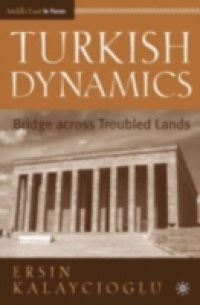Turkey is a pivotal state whose domestic political, economic, and social developments have important implications across the globe. Here a leading Turkish political scientist enhances understanding of the interactions of liberal democracy with longstanding cultural cleavages along secular-religious lines, ethnicity, and social class. This work focuses on how the process of urbanization and industrialization has led to social mobilization and population movements from villages into the cities and how competition to control the state and its networks of patronage has made politics contentious and fragmented. Intertwined with Turkey's domestic political and economic dynamics are the influences of relations, including tensions, with important external actors.

